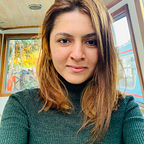Minimalism: 5 Lessons from the Netflix Documentary and more
Do you find it difficult to be happy? Is it hard to celebrate the small wins in life? Does nothing ever seem enough?
More often than not, the problem is not within us — This was our big eye-opener after watching the Netflix documentary, Minimalism.
Consumerism ≠ Happiness
Humans were born to be simple beings. The advent of consumerism birthed by capitalism left us believing otherwise. So much so that most Millennials and Gen Z don’t really know another way of life. Nothing really does it for us anymore — the concept of Paradox of Choice, as stated in the famous by Barry Schwartz, is that the diversity of our choices cause us stress and, ultimately, a feeling of trapped unhappiness.
Minimalism is an attempt to break away from this “auto-craving” mechanism. It is starting to let go of things we don’t really love or need. It is in realising that less is more happiness, contentment and freedom.
Create your own template
The American Dream, Bigger is Better, The Good Life — we often take these beliefs at face value and find ourselves in the pursuit of more and more things. Can we instead take a step back and ask ourselves — Is this my dream? Does this make me happy? Is this who I am? If the answer is no, know that the burden of being the Instagram poster child of an awesome life was never really on your shoulders.
Build a life that works for you, create your own template — because you can…and because that’s how it was always meant to be.
Living deliberating
Let’s wake up one day and decide that we’re going to exercise a second of deliberation before we reach out for our phones and buy that thing that lay in our carts. Ask ourselves a simple question “do I really need this?” And then let’s do it all over again. The journey to having more agency over our choice begins with having more agency over our options.
The true sense of Materiality
Juliet Schor, an economist and sociologist featured in the documentary, aptly explains the underlying meaning of materiality in “we are materialistic in the everyday sense of the word, yet not materialistic enough in the true sense of the word.” We need to care more about the materiality of the goods we use and the food we eat — what is it made of, how is it sourced, produced and delivered. Yet we are so consumed by the mere symbolic meaning of materiality.
Project 333
Courtney Carver, also featured in the documentary, put minimalism to action and how! Her book Project 333 is a minimalist fashion challenge that proves less is really more by inviting you to dress with 33 items or less for 3 months. If this is possible those are the only items you’ll ever need in your closet.
Beyond things, minimalism is finding well-being in the present, creating space not just in your closet but in your lives for all that really matters.
“Love people and use things, because the opposite never works.” – Joshua Fields Millburn and Ryan Nicodemus, the Minimalists.
Originally written for thewaabi.com
